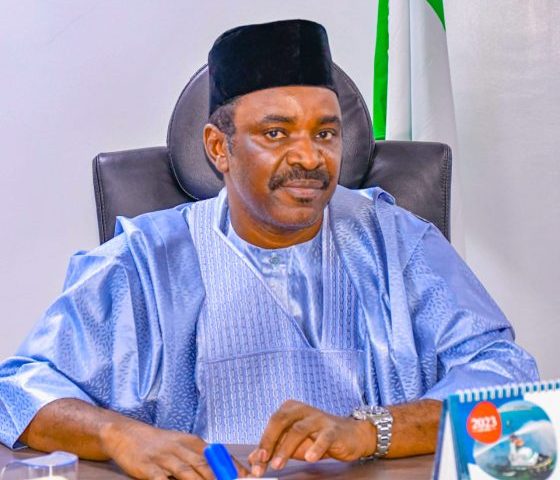Paragraph 1: The Call for Increased Funding and Alignment with National Development Goals
Senator Said Alkali, the Minister of Transportation, has presented the 2025 budget proposal for his ministry, emphasizing the urgent need for increased funding to bolster and expand Nigeria’s transportation infrastructure. This call for increased investment aligns with the nation’s Integrated Infrastructure Master Plan, a blueprint for long-term infrastructural development. Alkali underscored the importance of transportation as a vital catalyst for economic growth, describing it as the "gateway to the nation’s economy." He argued that adequate funding is crucial to sustain the momentum gained from the 2024 budget and ensure the continuity of the government’s developmental agenda, particularly within the framework of the Renewed Hope Agenda of the current administration.
Paragraph 2: Focusing on Rail Modernization and Addressing Funding Challenges
The minister’s presentation highlighted the prioritization of rail modernization projects as a core component of the 2025 budget proposal. Recognizing the financial constraints faced by the government, particularly in securing counterpart funding for international loans, he appealed to the National Assembly for sustained support. Alkali emphasized that modernizing the railway network is a key objective of the current administration, aligning with its broader focus on improving land transportation infrastructure. This strategic focus on rail development reflects the government’s intention to stimulate economic activity and facilitate trade across the country.
Paragraph 3: Highlighting Achievements in Rail Rehabilitation and Expansion
Reviewing the Ministry’s achievements in 2024, Alkali pointed to the successful rehabilitation of the narrow-gauge railway line from Lagos to Kano. This rehabilitated line is now operational for freight transport, connecting Lagos Port to the Dala Inland Dry Port in Kano. This achievement, Alkali stated, represents a major stride in revitalizing economic activities and facilitating trade between the north and south. He further highlighted the commissioning of a new 62km rail corridor connecting Port Harcourt in Rivers State to Aba in Abia State, a development intended to enhance connectivity between the Eastern ports and the inland areas, boosting trade and economic integration.
Paragraph 4: Promoting CNG-Powered Transportation and Addressing Fuel Subsidy Removal
Addressing the challenges posed by the removal of petrol subsidies, Alkali detailed the Ministry’s collaboration with the Presidential Initiative on Compressed Natural Gas (CNG). The distribution of 15 CNG-powered buses to three major transport unions – the National Union of Road Transport Workers (NURTW), the Road Transport Employers Association of Nigeria (RTEAN), and the National Association of Road Transport Owners (NARTO) – was cited as a significant step towards mitigating the impact of the subsidy removal on commuters. This initiative signals the government’s commitment to providing alternative transportation solutions and transitioning towards a cleaner energy economy.
Paragraph 5: Expanding CNG Conversion and Training Capacity Nationwide
The Minister announced that the Nigerian Institute of Transport Technology (NITT) has developed and commissioned CNG Conversion and Training Centres in five states – Abuja, Zaria, Enugu, Borno, and Kogi. This strategic move aims to equip mechanics and technicians with the necessary skills to convert vehicles to CNG, thereby expanding the adoption of this cleaner fuel alternative. Alkali further revealed plans to extend these training centers to all 36 states of the Federation, demonstrating a commitment to nationwide adoption of CNG technology.
Paragraph 6: The National Assembly’s Role and Emphasis on Rail Development
Senator Mohammed Adamu Aliero, Chairman of the Joint Senate/House Committees on Land Transport, underscored the vital link between efficient transportation infrastructure and Nigeria’s overall development. He emphasized that the budget defense process plays a crucial role in shaping the future trajectory of the nation’s progress. Aliero also stressed the critical need to prioritize the development of Nigeria’s rail system, advocating for it as the most viable alternative to the over-reliance on road transport, which has placed immense pressure on the existing road network. This shared emphasis on rail development underscores the collaborative effort between the executive and legislative branches to address Nigeria’s transportation challenges and unlock its economic potential.


